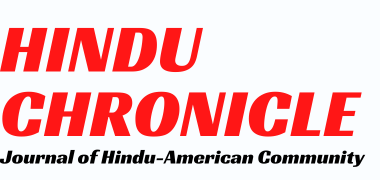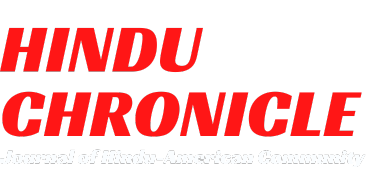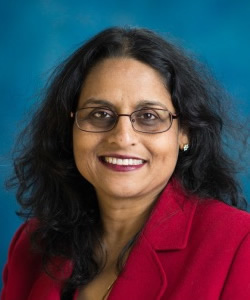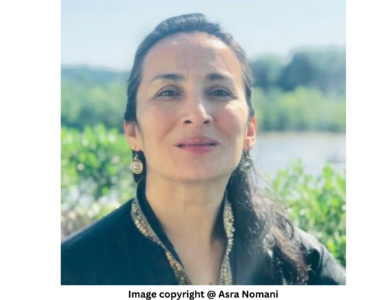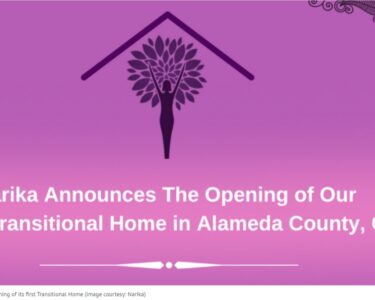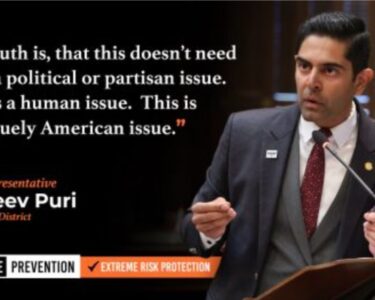By Shilpa Rao
Background: In March 2018, undergraduate student Shilpa Rao interviewed Anju Bhargava as part of the Doyle Undergraduate Fellows Program. Bhargava is the founder of Hindu American Seva Communities (HASC) and a former member of President Barack Obama’s inaugural Advisory Council on Faith-Based and Neighborhood Partnerships. In this interview, Bhargava discusses her perspectives on the Hindu identity and social justice and describes the HASC’s work.
Could you talk about what motivated you to get involved in this work?
My daughter inspired me to question differences, inequalities, and identity. It started when she was 2 years old and asked me why she looked different. This prompted me to start understanding who I am in America and asking questions about my daughter’s identity. As an immigrant, I recognized that I am an ancestor to an American of Indian heritage. I felt it was important for my daughter to understand her roots, or where she comes from. Equally important, it was important for her to understand her American identity. As a Hindu, I think about religion as a way to answer that question: who am I?
Indian culture today includes all religions that have become part of India in the last 2,000 years, and Hinduism is a major core of that. So, trying to educate my daughter became a personal journey for me to learn about Indian culture and Hinduism through many mediums—readings, Bharatanatyam dance, etc. Fortunately, I lived close to New York, so I had a lot of diverse perspectives of these traditions. I saw that Hinduism, which is generally not structured as an organized religion, when understood in the way it was intended to be, is a way of life and a means to find the divine within.
I learned and shared my learnings through different venues. For example, in the 1990s, Columbia University hosted a conference on the figure Sita and her impact. They asked me to present Sita from an immigrant perspective. I generally knew about Sita, but needed to bring out the contemporary aspects of her influence. Fortunately, I got access to research that helped me understand the inner meaning of Sita. I connected with her as a strong role model and wrote my first essay on Sita—“Sitayanam—A Woman’s Journey of Strength.” As a woman, wherever you are in your journey, you can connect with her story of strength.
Professionally, I was a banker. I became responsible for diversity. With my peers, I helped to create a Corporate Diversity Network and augmented Governor Whitman’s leadership initiatives in New Jersey. The bank that I worked for got sold, and I saw the underbelly of corporate America, of being a minority. I explicitly experienced consequences of white privilege and understood what it meant to be a minority. That made me realize that it wasn’t enough to learn and adapt—I had to do something about identity issues.
So, I joined the government. I became part of the Community Building fellowship program that Congress approved, which was administered through the U.S. Department of Housing and Urban Development in 1998 through 2000. At that time, the White House had started recognizing faith-based organizations as important partners of the government that helped to promote social services. For example, Catholic Charities has been the largest receiver of federal grants.
As I became aware of that fact, I turned to my community to encourage them to be part of this American tradition. I went to mosques, temples, and new immigrant community organizations. I talked at Hindu gatherings and said that temples should be used to serve, and I encouraged leaders to organize and coordinate these activities. They told me to write a strategy paper, but I did not know where to even begin at that time.
In the meantime, I had become an ordained priest and joined Livingston’s Interfaith Clergy Association. I was engaged in considerable interfaith work as the Hindu representative—and only non-Judeo-Christian representative. I also got a lot of exposure to how other faiths (primarily organized religions) work. As part of the collaboration, I participated in interfaith dialogues and worked on service projects.
People who had seen my work, especially the Indian people who were part of the Obama administration, vouched for me when my name came up. So, I became the only Hindu (and person of Eastern tradition) on the council.
Read the rest @ https://berkleycenter.georgetown.edu/interviews/a-conversation-with-anju-bhargava-founder-hindu-american-seva-communities-washington-d-c
